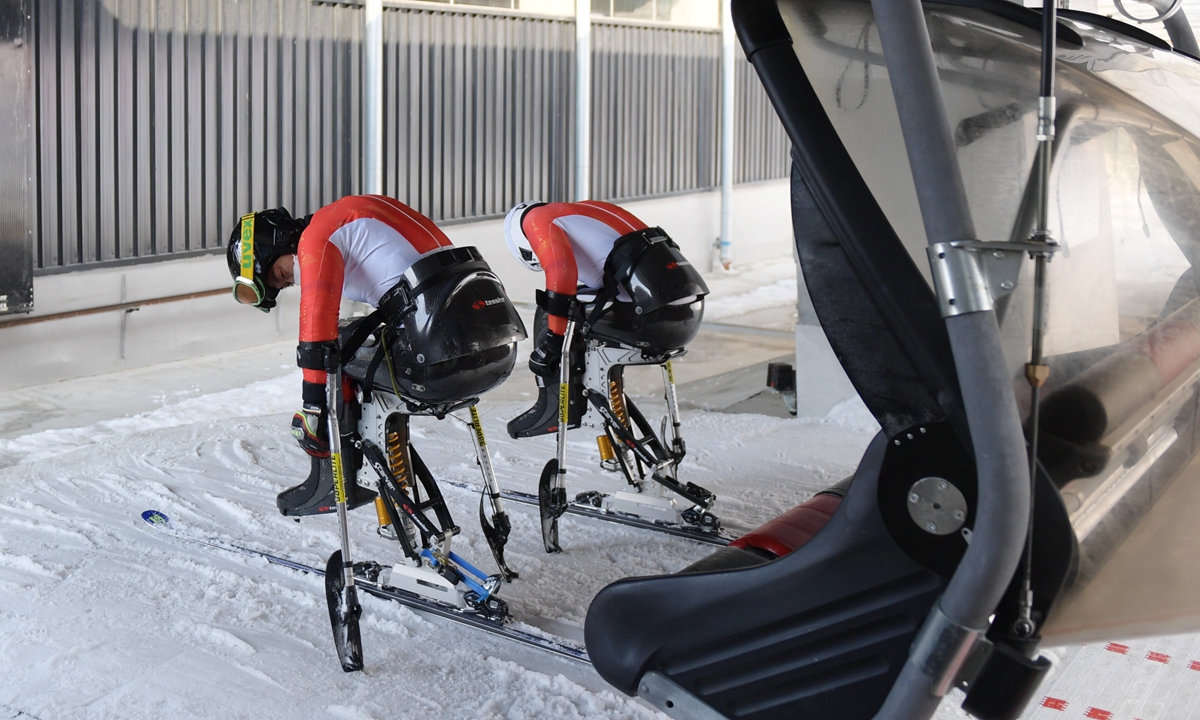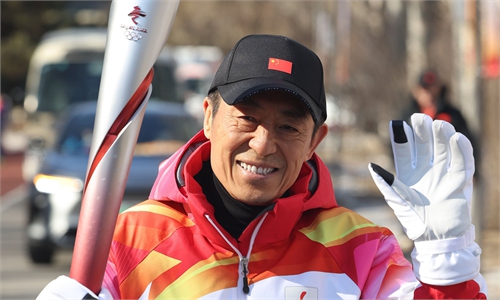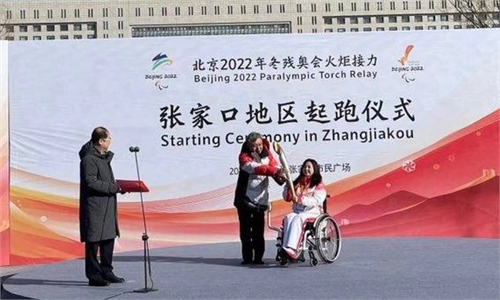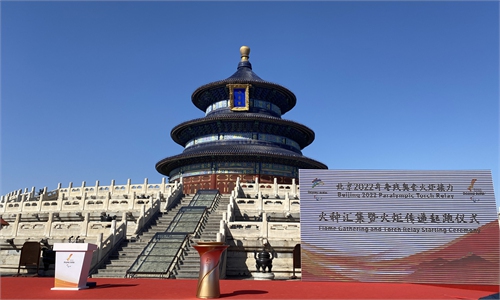SPORT / OLYMPICS
Details about Paralympic villages show Beijing’s effort to foster Olympic spirit

Athletes take a cable car at China's National Alpine Skiing Center in Yanqing District, Beijing, capital of China, on Feb. 28, 2022. After the Winter Olympics, China's National Alpine Skiing Center in Yanqing entered the transition stage to better serve the Beijing 2022 Winter Paralympic Games. Photo: Xinhua
Beijing 2022 Games' Olympic villages have been transformed into homes for around 1,700 Paralympics athletes and participants from the world after the Beijing 2022 Winter Olympics came to an end on February 20. Fitted with fully equipped accessibility facilities, they also include arrangements such as professional guide dogs with tracking codes, with these small details reflecting Beijing's commitment to create a humane and friendly environment.
Establishing accessibility facilities for Paralympics athletes in Beijing, Yanqing, and Zhangjiakou villages have been completed to cover three major aspects - "commute," "eating" and staying."
Guide dogs were allocated as "animal volunteers" to provide help to with athletes of visual difficulties to their everyday commuting.
Not only have these "volunteers" been professionally trained to be capable of adapting to complex cold environment, each of them has, for the first time that carries with an anti-counterfeiting identification tracking code that allows guider to know the help's background such as blood types, age and expertise, which can offer more matched services for disabled athletes.
In order to offer athletes a safe and warm stay, non-slip materials are used for corridors and interior floors in all the flats. Each dorm has been installed with doors that can be opened using a single arm. Beds have been lowered 10 centimeters compared with the Winter Olympics ones, providing better access for wheelchair-bound athletes.
Similar to the widely adored Bing Dwen Dwen during the Winter Olympics, the mascot Shuey Rhon Rhon's sculpture has been installed in villages, and also embedded on Winter Paralympics souvenirs such as pins, which became popular among athletes.
On Wednesday, the Swiss delegation posted a "photo wall" on social media to show athletes' group photo with Shuey Rhon Rhon.
The Beijing 2022 Winter Games, to fulfill its promise to "put athletes at the center," has reconditioned Winter Olympics restaurants by increasing tables numbers and raising them five to six centimeters higher to accommodate Paralympics athletes' needs. Braille has been added to menus.
"We adjusted the number of tables and chairs, both horizontal and vertical, so that two wheelchairs could pass at the same time," said Gao Xuemei, the business manager of Yanqing village's catering service, told media.
There are also added mixers on dining tables that they are ready for people who require liquid food. Ma Jia, who is the Yanqing Winter Olympic village catering operation manager, told media. The Yanqing village alone will anticipate 39 delegations with 549 athletes and delegation members in total.
"Such details reflect China has the condition and the resource to do things that can go beyond what an Olympics and Paralympics host was required to do," Wang Dazhao, a Beijing-based sports commentator, told the Global Times.
"It can reflect the increased power and capability of China," he added.
Free shuttle buses are also available for easy transportations between sites. All flats and other supporting facilities inside the villages such as gym and entertainment centers are all with added accessibility facilities.
Not only the villages have been updated for Paralympic athletes' convenience, the Games' venues have also been installed with considerate designs such as the vending machine that carefully mixed different beverages suitable for people of different heights.
The Winter Olympics sign language AI system, a technological project that was developed specifically for delivering timely Games info to disabled group has also been put in use, not only for insider athletes, but also for disabled audiences. In China, there are about 27.8 million people with hearing disabilities, accounting for more than 30 percent of the disabled in the country.
"Treating the Olympics and the Paralympics equally has always been our attitude. The mentality is also a form of social education addressing equality," added Wang.



